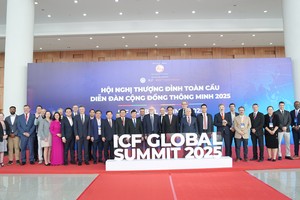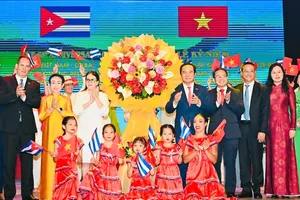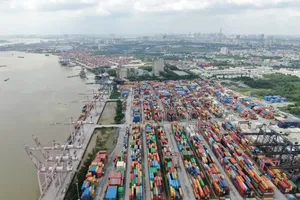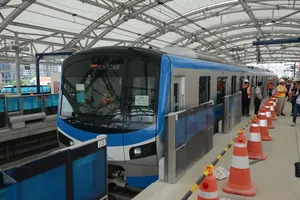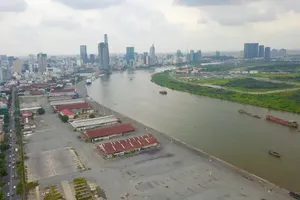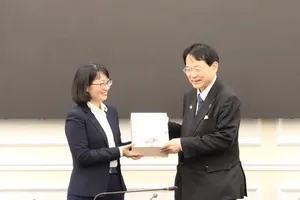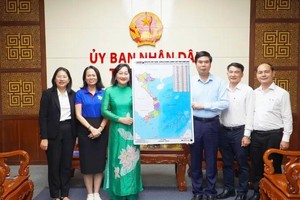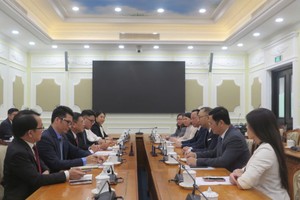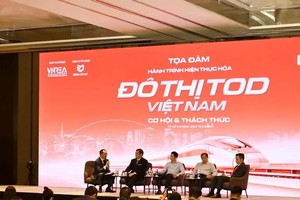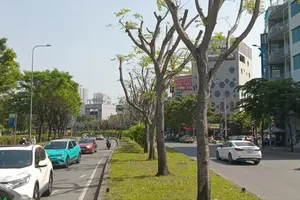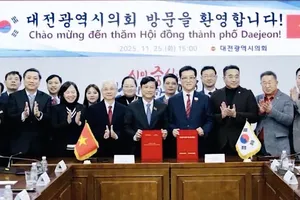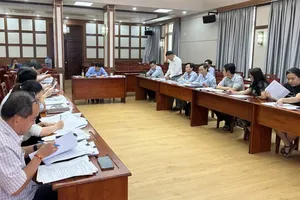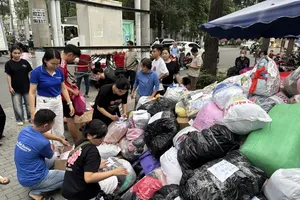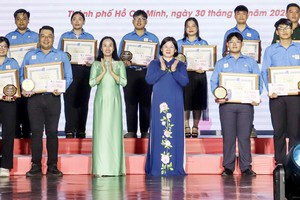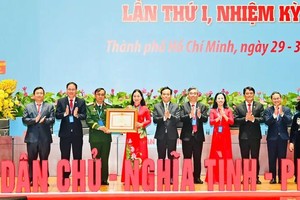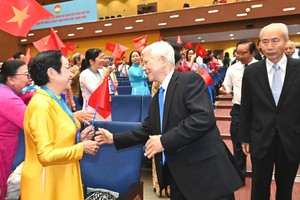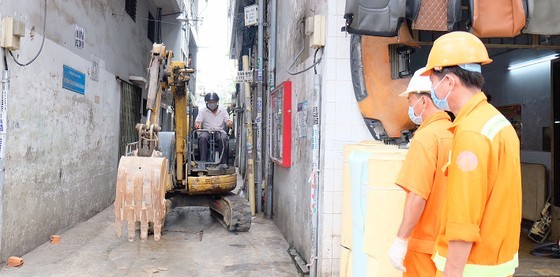 Ward administrations are short of budget to fix alleys
Ward administrations are short of budget to fix alleys
Especially, densely populated districts and wards usually encounter many unexpected expenditure tasks that cannot be foreseen before the annual budget estimate is prepared. Accordingly, for urgent tasks requiring capital, people's committees in districts and wards must submit their proposals to the municipal People's Committees which will send proposals to the People's Council for consideration and approval which takes a long time.
In the first six months of 2022, the Ho Chi Minh City Department of Finance received many complaints from districts about the lack of funds to repair alleys because they are not allowed to use the budget surplus to do public investment projects under the Resolution of the district Party Committee at the beginning of the term.
Chairman of Binh Hung Hoa A Ward People's Committee Nguyen Van Ngan said that in the past, the ward was allocated residual funds, but after implementing the urban government, the ward no longer had this funding source, so the administration is unable to carry out unexpected tasks, including disease prevention.
The chairman revealed each ward's reserve budget was about VND500 million on average previously but after implementing the urban administration model, each ward is provided with VND100 million regardless of a small or large population. With this reserve fund, the wards face many difficulties, especially those with a large population, said Mr. Nguyen Van Ngan.
Being the locality with the highest budget revenue in Ho Chi Minh City, Chairman of the People's Committee of District 1 Le Duc Thanh also explained that when implementing the urban government model, District 1 is the budget estimation unit, and the entire surplus budget will be transferred to Ho Chi Minh City. Subsequently, all projects in the district have to wait for capital allocation from Ho Chi Minh City. Every year, District 1 needs about VND200 billion but now it is only allocated VND48 billion which will be distributed to administrations in each ward. He moaned that ward governments will certainly face difficulties in spending with such a small allocation of the fund.
A leader of the People's Committee of a ward in District 3 complained that currently, buying a new set of computers for ward cadres and civil servants to work must also consult and wait for Ho Chi Minh City's approval. Specifically, he outlined how arduous the process was to get funding approval. Accordingly, every year, the wards register their equipment needs with the Department of Finance - Planning of the district. Next, the District Planning and Finance Department will summarize and register it with the Department of Finance of Ho Chi Minh City.
At the end of the year, the Department of Finance advised the People's Committee of Ho Chi Minh City to make a centralized procurement report and submit it to the People's Council for approval.
Chairman of Binh Tan District People's Committee Nguyen Minh Nhut shared that after implementing urban government, all expenditure must comply with the list of estimates that have been arranged since the beginning of the year. This results in the fact that people's committees in districts and wards lack initiative in dealing with unexpected and arising tasks. Therefore, Chairman Nguyen Minh Nhut proposed to the city People's Committee to increase the reserve fund for each district.
Secretary of the District 7 Party Committee Vo Khac Thai further suggested that the southern metropolis presently has a mechanism to authorize and remove financial policies for districts and wards; hence, it can proactively assign specific tasks to localities.
Ms. Tran Mai Phuong, Deputy Director of Ho Chi Minh City Department of Finance, said that currently, all 16 districts implementing urban government are facing the above reality. By the fourth quarter of 2022, the districts are still short of funds, the Department of Finance will summarize the funding needs of the districts to report to the municipal People's Committee to submit to the city People's Council for additional funding from the city’s budget.
Presently, the Department of Finance of Ho Chi Minh City has advised the People's Committee of Ho Chi Minh City to arrange a general budget management package for the districts. Thereby, Ho Chi Minh City has arranged a general operating package on the budget of VND749 billion to supplement the unexpected expenses incurred by the districts. The city’s financial sector has also guided all districts to review and determine the remaining balance, and at the same time review the list of necessary public investment projects to ensure the conditions for disbursement, first of all, the remaining balance and then additional source from the HCMC budget.
Regarding the difficulties and lack of initiative in performing tasks, especially in the current epidemic prevention and control in districts and wards, Vice Chairman of Ho Chi Minh City People's Committee Duong Anh Duc said that he asked the Department of Finance to study a mechanism to make a budget allocation to districts more flexible with the aim to help districts to be more proactive in their work because epidemics or incidents can strike at any time without waiting for the meeting of the People's Council of Ho Chi Minh City to consider and adjust.
Mr. Vo Khac Thai, Secretary of the Party Committee of District 7 said that Ho Chi Minh City has allocated a budget for the district, but every year, the district and wards have thousands of tasks to implement, while all activities that need the budget must be submitted to the municipal People's Council for consideration, so it takes a lot of time preventing the district’s development.
He took alley expansion as an example. Previously, according to the process, the District People's Committee submitted alley expansion projects to the district People's Council for appraisal and the council decides to approve. But now, because the district uses the state budget for the alley expansion; hence, it must comply with the Law on Public Investment, the process and procedures can take up to several years.
Consequently, the task can’t be done. Local residents agreed to donate land to widen the alley, but they changed their mind after a long time of waiting. Additionally, while waiting to expand the alley, people sell their houses and the new owner disagrees to donate land. That is just one of the examples showing the inadequacy in not organizing the People's Council at the district and ward levels that Ho Chi Minh City needs to propose to remove.
Ms. Pham Thi Hong Ha, Director of Ho Chi Minh City Department of Finance proposed to allow district budget reserve. According to her, Ho Chi Minh City has reported the issue to the Ministry of Finance, proposing the ministry to guide budgetary financial mechanisms, ensuring the initiative in budget management of 16 districts. Ho Chi Minh City proposed a specific mechanism for the city, for the budget of 16 districts. In its proposal, HCMC petitioned to allow districts to have their own budget reserve as well as amendments to the Law on Organization of Local Government.
Specifically, in order to facilitate the socio-economic management and administration of localities, the municipal People's Committee has made a written request to the government to officially guide the method of allocating funds to perform the tasks of the local government.
At the same time, it is recommended that ministries and agencies have guidance on the process or a specific mechanism for assigning, managing, adjusting, and supplementing the budget estimate of the district budget estimation unit to ensure the initiative and timeliness of district people's committees in budget management.
